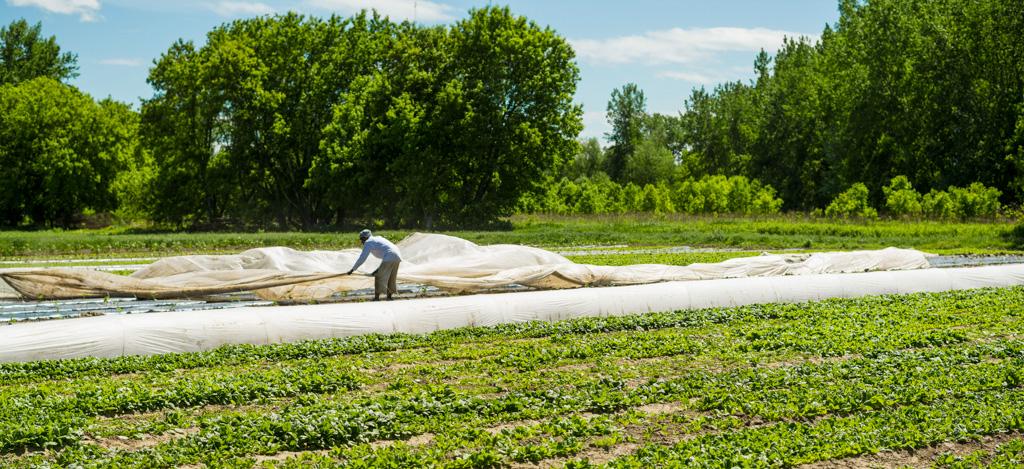[This article originally ran in the Nov. 30, 2015 edition of the Addison Independent.]
By GAEN MURPHREE
SECRETARY OF AGRICULTURE Chuck Ross calls agriculture “the soul of the state” in a recent Vermont Agricultural Literacy Week event at the Vermont Folklife Center.
MIDDLEBURY — Agricultural literacy means that ordinary consumers “actually know where milk comes from, that it’s from the teats of a cow,” said Secretary of Agriculture Chuck Ross.
“They actually know that the pork loin they might be eating that night might have been somebody’s pig in the back yard two weeks prior. They actually understand that the manure spreader going down the road at 15 miles an hour is not an obstruction on their way to work to their job in town, but it’s actually a way to convey and purvey nutrients onto the soil so that we can sustain the agricultural enterprises that have been a part of the state for many years.”
With these words, Ross kicked off Vermont’s Agricultural Literacy Week at a recent Vermont Folklife Center event in Middlebury.
Agricultural Literacy Week, Nov. 16-21, is a project of the Northeast Organic Farmers Association of Vermont (NOFA-VT), in partnership with the Vermont Agency of Agriculture, Food and Markets, the University of Vermont Extension program, and the Vermont Department of Libraries. The weeklong celebration of agriculture was designed to educate Vermont citizens about the important role of farms in Vermont communities and to the economy of the state. It focused on local farming, healthy food and strong communities.
This year’s Agricultural Literacy Week was celebrated around the state with everything from a “sheep barn” at the Jericho Town Library; a screening of a documentary “Food for Thought, Food for Life” at Montpelier, Highgate, Hartland and Roxbury; and farm tours in Underhill and Milton.
Alongside Secretary Ross, the kickoff event in Middlebury featured State Librarian Martha Reid, community organizers from NOFA-VT and Vermont Folklife Center Co-director Gregory Sharrow.
At the center of the inaugural event was a presentation from Poultney High School’s Poultney Working Lands Oral History Project. During the spring semester of 2015, Poultney High School juniors and seniors in social studies teacher Janet Chandler’s “Civics and Law” class took on the large-scale oral history project. Students interviewed community members who are part of Poultney’s working landscape, including local farmers and a slate quarrier.
NOFA Farm to Community Mentor Scout Proft and local writer Maria Reade helped the students to develop the project. The students also traveled to the Vermont Folklife Center to learn more about how to gather oral histories.
Presenting alongside Chandler at the Middlebury event was Poultney High School senior Connor Hill, who interviewed his father, who owns and operates a local slate quarry.
“What I got out of the project was just really learning about what is around my area, because I’ve lived there 17 out of the 18 years I’ve been alive, but I didn’t really have any idea about the land projects that were going on around Poultney,” Hill said.
“I knew that my dad owned some quarries. And I knew there were some farms around. But I didn’t really have any great detail what each group did. Getting to know the community better is definitely what I took out of the project.”
For Chandler, the project provided a great way for students to engage in a long-term project that developed core skills while also asking students to persevere and see a long project through over time. She felt the project was also a great way for Poultney students to give something back to their community.
“They were pretty proud of what they created,” said Chandler. “They could see that it’s something that is bigger than them, bigger than Poultney High School, and bigger than a Poultney event. Quite a number of these kids come from families who’ve lived in that town forever. Forever. And for them to know that they’re a part of it, that’s important. It gives them a lot of confidence. I actually hope — and it might be a while in the future — that they will look back and understand that with this project, they made a contribution to their town.”
Reporter Gaen Murphree is at [email protected].

